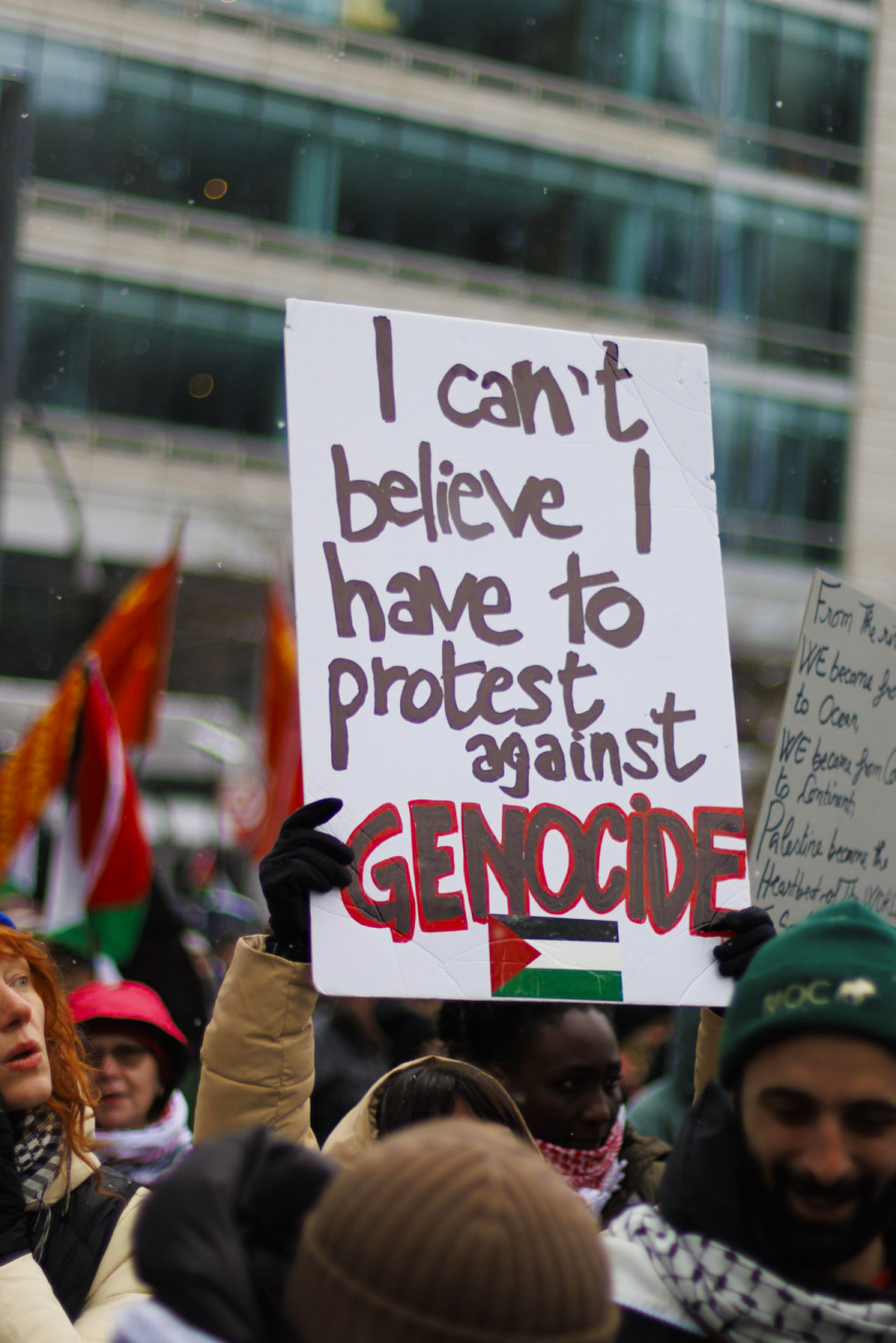One year since Oct. 7
Reflecting on the heights of activism this past year and the future of the movement
It will soon be one year since Oct. 7.
Exactly 357 days ago, the Palestinian militant group Hamas fired rockets into and re-entered the occupied territory known as Israel, killing over a thousand Israeli civilians, according to Israeli officials. Israel’s retaliation of the event continues, with the displacement of over 2 million Palestinians and 42,000 confirmed Palestinian civilian murders to date, according to the Gaza Health Ministry.
Reflecting on the past year, advocates for Palestine in Montreal talk about how the Palestinian liberation movement has progressed and discuss where it is now.
Peaks of activism
Last year, the first peak in mobilization came immediately after Israel’s escalated attacks on Gaza.
“In the heat of the moment, everyone just wanted to do something for Palestine. They didn’t care what we were doing [or] how we did it, as long as we did something,” said Hassan Ridha, a member of Concordia University’s Thaqalayn Muslim Students’ Association and an active advocate for Palestine.
“We hadn’t mobilized this quickly and this efficiently until an attack happened, until we saw the death numbers rise significantly within a matter of days,” Ridha said. “So this is when we reacted.”
Ridha added that, over the past year, another key point in the liberation movement was the establishment of the encampment at McGill University.
“When students came together to say ‘No, we’re not going to get used to what is happening in Gaza, until the university meets [our] demands we’re not just going to sit idly,’” he said, “I think this revived the spirit of many people who weren’t as involved anymore with the movement.”
Ridha isn’t the only one that feels like the encampment was a key step towards liberation.
“The encampment set a precedent,” said a member of Students for Palestine’s Honour and Resistance Concordia (SPHR ConU), who has been granted anonymity for safety reasons. They said that the encampment saw a huge surge in student mobilization in particular, and that it set a precedent for what was considered fair protest in Montreal through McGill’s two rejected injunctions to dismantle the encampment.
According to Ridha, throughout the year, collective activism for the Palestinian cause was the most prominent directly following Israel’s heaviest attacks. He said there was a surge in activism most recently following Israel’s air strikes on Lebanon that began on Sept. 23.
“People came back together after they saw the heavy bombardment of Beirut,” Ridha said, “which at least shows consistency, that we are able to come back together [and mobilize].”
The future of the Palestinian cause
“Over the last year, I think we’ve seen action from the masses at, what I would say, is an unprecedented and an inspiring level,” said Haya, a member of The Palestinian Youth Movement’s (PYM) Montreal chapter, whose last name has been kept anonymous for safety reasons. “People have responded to the fact that the genocide has been going on for a year and continue to respond to it.”
Now, Haya added, PYM is looking to shift to more long-term forms of activism. She said that PYM recently launched a new campaign entitled “Mask Off Maersk.” which aims to target one of the largest shipping companies in the world, the A.P. Moller-Maersk Group.
“[Maersk] acts as a middleman for arms and weapons shipments to Israel,” Haya said. According to her, by interrupting the logistics of shipping, this campaign will attack weapons and arms manufacturers “across the board.”
Meanwhile, the SPHR ConU member said they feel that—through heightened awareness for the Boycott, Divestment, Sanctions (BDS) movement—successfully pressuring Concordia, McGill and other large Montreal institutions to divest from Israel is a realistic goal for 2025.
“We’re closer to divestment than ever,” they said. “[The] BDS movement has grown so much it’s become a [central] topic in the city.”
They added that, in relation to the BDS movement, the next step after divestment would be an academic boycott of institutions such as Concordia.
“Everyone has the freedom to learn whatever they want, but if it’s at the cost of the occupation of a people, or if it’s at the cost of killing people, then I don’t think that’s academic freedom,” they said.
Still, activists like Ridha believe that certain important accomplishments have already been made since Oct. 7, 2023.
“The biggest achievement, for me, is awareness—it’s something you can’t lose,” Ridha said. “Over time, people might lose interest in participating in protests or in doing active work for Palestine, but no one is going to go home and forget about the companies to boycott.”
He added that new activists for the Palestinian cause have learned so much more about the movement as a whole over the past year, from the meaning of the keffiyeh to the history of Palestinian resistance.
“This, I think, is the best thing we have achieved since Oct. 7,” Ridha said. “It’s the gaining of knowledge that gives us a foundation for the next time.”
With files from Menna Nayel
This article originally appeared in Volume 45, Issue 3, published October 1, 2024.







